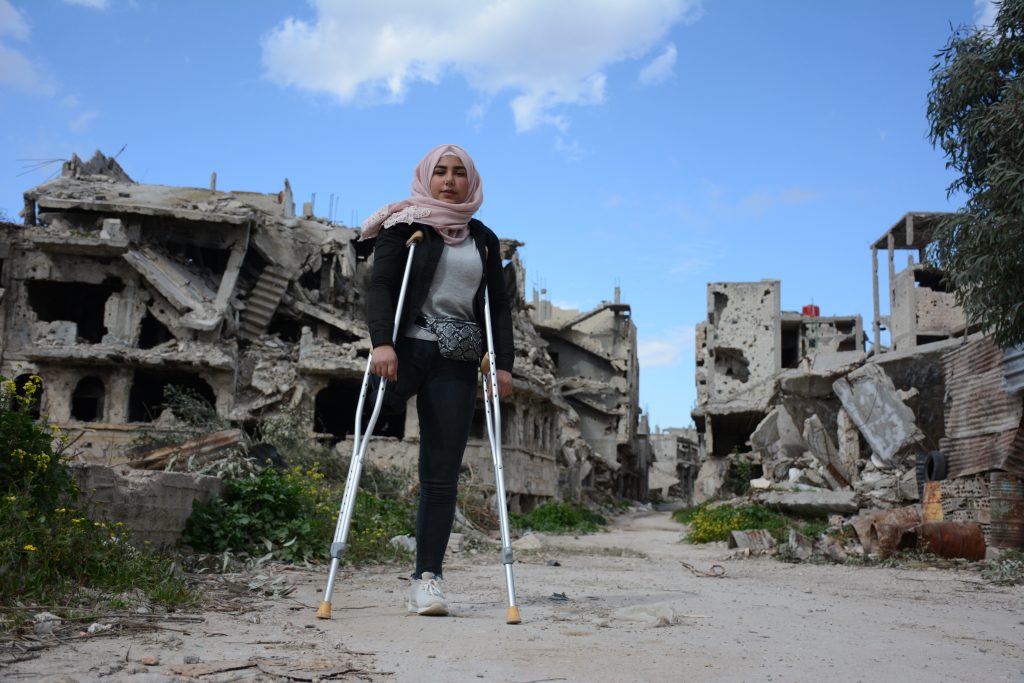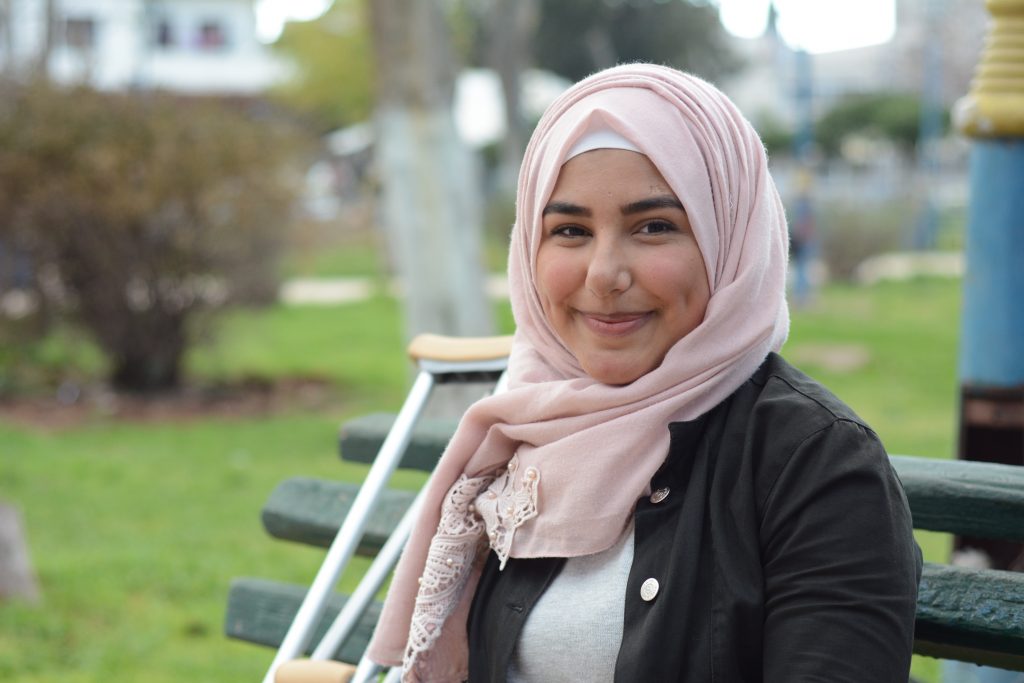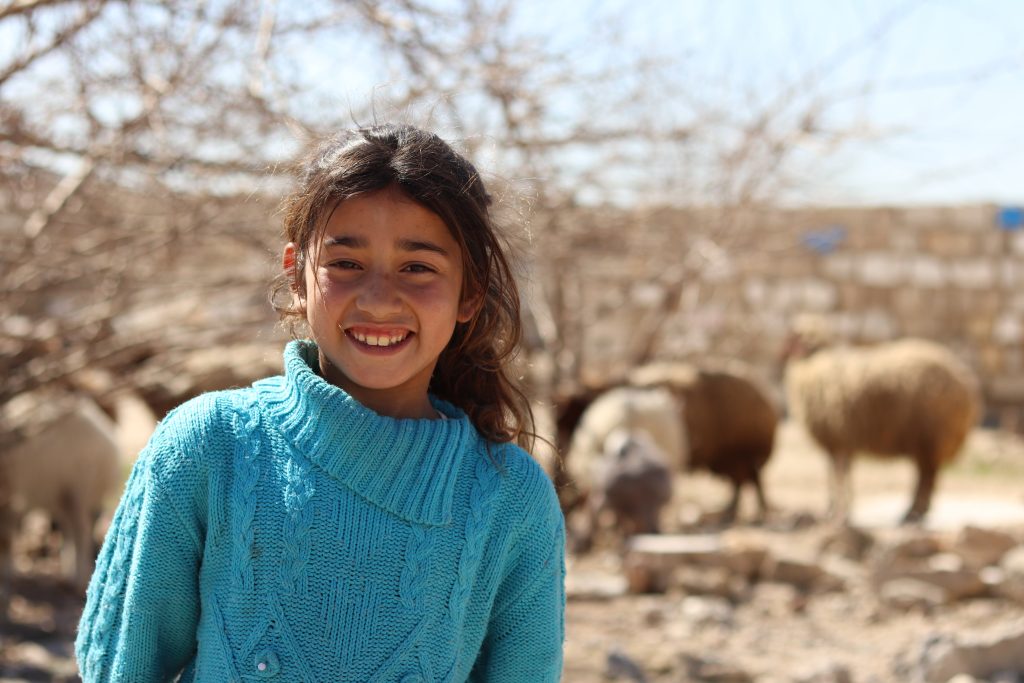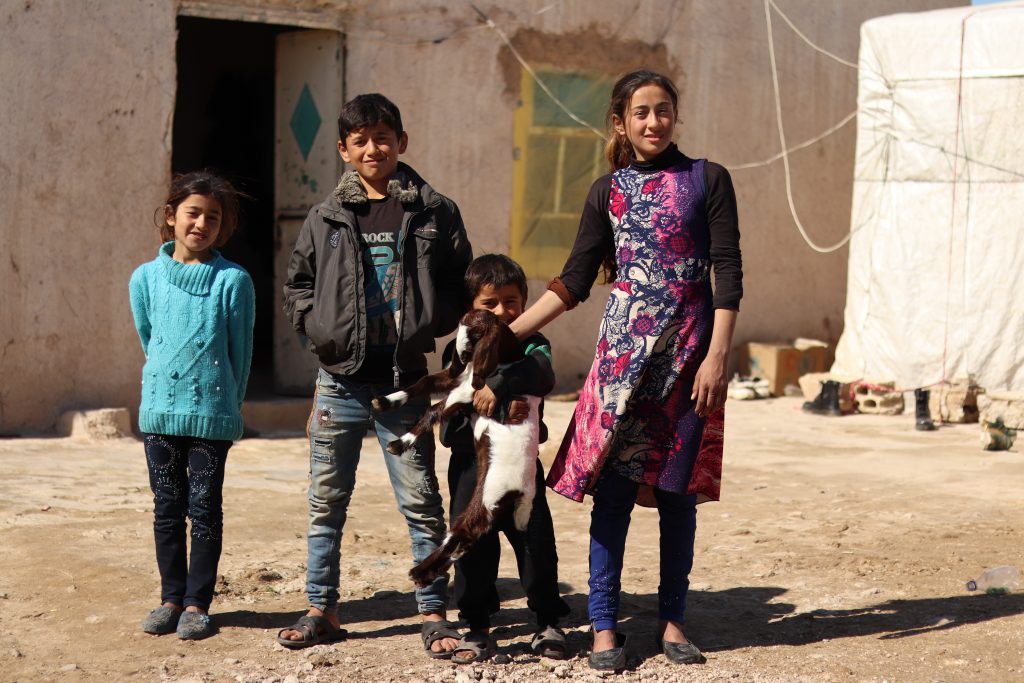The Syrian war is entering its ninth year.
Today, there are Syrian children such as Kinda, who you’ll read more about below, who have never known peace. Who have never known the feeling of safety. Never had a bed to call their own.
Having lived through violence, bombs, machine-gun fire, hunger and freezing temperatures, Syria’s children are ready to tell their stories.
Please read them.
Click here if you’d like to donate to the Syrian Crisis
Meet Nour

“My greatest loss was my mother. She loved us immensely,” says sixteen-year old Nour. The passing away of her mother was one of many loses that Nour had to face. Losses way beyond her years.
Back in 2011, escalating violence forced Nour’s family out of their home in Homs city, Syria. They sought shelter in Ar-Raqqa, northeast Syria.
“We all squeezed into one vehicle, there was barely enough space for us all,” says Nour as she recalls their displacement journey. The family was one of the last two remaining families to leave the area.
“Being away from home, our neighbourhood and my friends was not easy. I felt alienated.” As soon as the family settled in Ar-Raqqa, Nour’s parents enrolled her and her sisters in school.
They were keen on ensuring their children continue their education and wanted to restore some normalcy to their lives. But things could no longer be normal with the passing away of Nour’s mother to cancer in 2013.
Travel for Medical Attention
A year later, her father had to make a tough call. He sent Nour back to Homs, from one war-ravaged city to another, in order to get the medical attention she needed.
Back in Ar-Raqqa, Nour who had suffered from severe pains in her right knee, endured not only the agony of numerous doctor visits but also the absence of the level of healthcare she required.
In 2015, in the absence of her mother, Nour was accompanied to Homs by her aunt for a medical follow up. There she endured yet another loss. Her right leg had to be amputated due to medical complications. To enable her to recover, Nour stayed with her aunt.
For the next two years she lived away from her father and siblings and had no access to school; she lost years of learning and had to cope with losing her leg all by herself.
“I had to get used to walking with crutches, and to people’s stares,” says Nour. “But life goes on. I will never set boundaries for my ambitions.”
Hopes for the Future

With a spirit as high as hers and a determination as strong, Nour was able to move past all the hardship she has been through.
In 2017, following respite in violence in Karm Al-zaitoun, Nour’s father and siblings returned home. With their support and through the UNICEF-supported ‘Curriculum B’ accelerated learning programme, Nour returned to school. She has been catching up on her missed learning while her father works to rebuild their war-damaged home.
“I am very optimistic knowing that education can help children fulfil their ambitions.” Nour would like to pursue her education and aspires to become a psychologist in the future in order to help her community.
She also believes psychosocial support can help alleviate the impact that years of brutal conflict have had on the lives of children.
Meet Kinda

Nine-year-old Kinda is as old as the Syrian conflict. She has grown up knowing nothing but violence, displacement and loss.
When she was only a toddler, violence escalated near the family’s home in Sheikh Ahmad village in eastern rural Aleppo, marking the beginning of a life of loss for Kinda and her siblings.
After their father was abducted by extremist groups, Kinda, together with her mother, grandmother and four siblings set out on a long journey of displacement, forced to flee three times in five years.
“We grabbed anything we could carry and fled with a few other families in the middle of the night,” recalls Wafaa, Kinda’s 37-year-old mother.
“We settled in a small makeshift tent on an open farm and would eat produce from the trees around us,” she adds. After her husband disappeared, Wafaa found herself under a huge burden of caring for her five children and her sick mother.
Escape to Safety
In 2017, following respite in violence in their hometown, the family decided to move back, but doing so meant having to cross active conflict lines. Wafaa contacted a smuggler who asked for a large sum of money they could not afford.
“My mother had a gold bracelet that was a gift from my grandmother; I tried to stop her from selling it because I knew how much it meant to her,” explains Wafaa. “But it was our only way out; we sold the bracelet, paid the smuggler and set out on a long and dangerous journey.”
The family had to walk from dusk to dawn without a break, walking in slippers over a bumpy track covered in thorns and wires. “We’d walk two steps and the smuggler would tell us to duck down as we could hear the sounds of fighting nearby,” says Kinda using words well beyond her age.

“We were very scared, we didn’t think we would make it,” she adds. The arduous journey was even more pronounced for Wafaa’s mother who pleaded with them to leave her to die and continue their journey.
“We told her, ‘We either live together or die together,” continues Kinda with tearful eyes as she recalled that night.
With the first rays of sun, the family arrived in their village only to find most of their home turned into rubble. Refusing to give up, they set-up a tent near the debris that used to be their home.
“The entire village was wiped down, all we could do was to work together to clean up the rubble and move on,” says Wafaa.
Road to Recovery
Despite everything they have been through, the family is more determined than ever to make a better future for themselves. Wafaa received a small grant from a local charity that she used to buy a few sheep and chickens to support her family selling eggs, milk and homemade dairy products.
Kinda, as well as her sister Bayan, 13, and brothers Walid, 10 and Ahmad, 5, are all attending a UNICEF-supported school in Sheikh Ahmad village where they were able to catch up with their learning.
“School is my life; I go there to learn and play with my friends and we help each other,” says Kinda.
The children also attend a UNICEF-supported multiservice centre where they receive psychosocial support to help them cope with the trauma they have witnessed, as well as mine risk education to help them identify and protect themselves against explosive hazards which are prevalent in their war-ravaged village.
Every donation you make to Syria goes to children like Nour and Kinda, ensuring they have a healthy, safe future to look forward to.
Learn how you can support more Syrian children in need.
